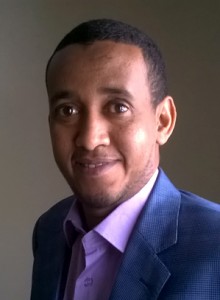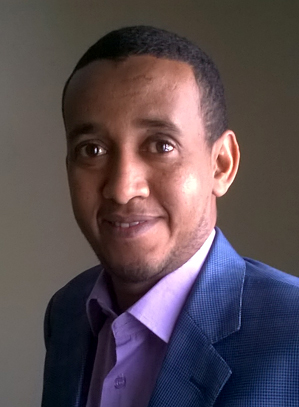 Abdulahi Dohe’s work with the Somali-American community opened his awareness to the changing health problems within this immigrant population.
Abdulahi Dohe’s work with the Somali-American community opened his awareness to the changing health problems within this immigrant population.
Somali immigrants come from a country where more than 90 percent of deaths are related to infectious diseases. Here in the U.S., their leading causes of death are non-communicable, chronic diseases, such as heart disease, cancer, and diabetes.
As a Supplemental Nutrition Assistance Program (SNAP) educator with the University of Minnesota’s Extension service, Dohe works with low-income Somali immigrants to teach them about the importance of good nutrition and how to make healthy food choices within a budget.
Dohe began his career in public health in his native country of Ethiopia, where he worked for the Ethiopian Somali Regional State Health Bureau. There, his roles ranged from working as a physician at a very small health center to serving as a health promotion and environmental coordinator overseeing maternal, child and environmental health activities for a region of five million people. During this period, he led a fight against a regional polio outbreak and partnered with national and international organizations as a technical assistant in immunization.
Given his range of experience in public health, Dohe feels that public health science can’t achieve its goals without proper policy and management.
“The E-PHAP program gave me the opportunity to learn about policy and management while allowing me to make an immediate impact in the U.S. and back home in Ethiopia,” says Dohe. “I chose to pursue this executive program because I believe I can realize my dream of specializing in public health policy. The program allows me to stay with my family and continue routine life activities.”
~ Post by Mona Rath

